|
In Scandinavian countries the tradition is to give and read a book on Christmas Eve. In these different times what a great idea to immerse ourselves in the magical world of the imagination through one - or more - of the great books on offer.
During these long weeks in lockdown I comforted myself by saying it was at least an opportunity to concentrated on the long awaited sequel to Seeds of Doubt. I'm excited to say the plot is coming together really well but ... the fantasy of long uninterrupted hours of words pouring onto the page has sadly remained just that, a fantasy. This was partly because my son asked if I would write another life story, following on from those I created for John Devereux - In My Own Words - and my mother, to celebrate her 99th birthday. 'Of course,' I responded, 'whose story?' 'Yours', he replied. A few months on I find myself only a third of the way through, having spent hours in the loft re-reading old love letters, school reports, work assignments, sketches and scribblings - including an illustrated story written when I was 10. A chest of black and white photographs from my youth has also been emptied and everything digitised, something that's been on the 'to do' list for far too long, The task then was to decide which to use, printing a heavily illustrated book is an expensive process. But then it occurred to me. I could create a digital book where memories can constantly be added as they occur to me with endless photos included to prompt those memories. My life story is turning into a trilogy with Part One now ready as a present for this Christmas. Perhaps Part Two will make it for my son's birthday and Part Three - well, who knows when that will end.
0 Comments
On February 6th, 1918 the Representation of the People Act was passed giving approximately 8.5 million women the vote. Equality was still some way off - the Act enfranchised all men over 21 but only women over 30 who met a property qualification - but it was a landmark moment.
For over half a century numerous petitions had been sent to Parliament - 1,747 between 1851 and 1905 containing 486,747 names. Woman suffrage was debated in Parliament no less than 20 times, 12 Bills were brought forward, some gained a second reading. All were ultimately rejected - until 1918. But it was a potential crisis over male voters that started the ball rolling. Only men resident in the UK for twelve months prior to a general election were eligible to vote. At a stroke, thousands of servicemen risking their lives for their country were disenfranchised. Something had to be done. In 1916 an inter-party committee was formed to discuss franchise reform. This Speakers’ Conference Committee, as it became known, was chaired by the Speaker of the House of Commons, James William Lowther, the same man who had ruled against the women in 1913. It didn’t bode well. But, in a startling about-turn, Asquith gave a speech to the Commons that implied he was relaxing his opposition to women’s suffrage. Why the change of heart? According to Asquith it was to recognise the vital wartime role of women. Over 700,000 were employed in munitions factories. Thousands more worked on farms, in the docks, government departments and other male-dominated industries such as engineering. Not to speak of the huge increase in women in more traditional working roles as typists and secretaries. More than ever women realised they could function as well as men. It was something they wouldn’t forget once the war was over. Asquith knew that when the men returned, women would be ousted from roles that had given them confidence, independence, new skills and an income. They would be made redundant or forced back into domestic work - creating a fertile recruiting ground for the suffragettes. It would be a flashpoint for a return to, as Asquith put it ‘that detestable campaign that disfigured the annals of political agitation in this country’. The escalation of militancy before the war divided the suffrage movement. Many thought it did more to hinder than advance the cause. But the prospect of a return to that militancy inevitably played a part in Asquith’s about-turn. How could he imprison and torture women who had made such a valuable contribution to the war effort? The last thing society needed now was massive social unrest. The days before the report was published were an anxious time for suffrage societies, finally united under the banner of the National Council for Adult Suffrage. They inundated the government with resolutions: ‘that the war has made obsolete all our past system of enfranchisement and registration. That the only solution of the difficulties that have arisen is adult suffrage, including women.’ Votes for Women entered the fray with a barbed reminder of past promises. In an editorial directed at the Prime Minister, no longer Herbert Asquith but Lloyd George, it commented: ‘It is not forgotten how he [Lloyd George] “torpedoed” the Conciliation Bill because its franchise was not broad and democratic enough … now is his golden moment.’ In reality, women’s suffrage was very much on the Committee’s agenda. In a measure of how far attitudes had changed they considered awarding women an equal franchise with men. But to create a female majority was a step too far. They compromised with a recommendation that the franchise should be limited to women over the age of either thirty or thirty-five. This was the proposal presented to Lloyd George in January 1917. Two months later, twenty-two suffrage societies, under the leadership of Millicent Fawcett, met with Government ministers for a briefing on the recommendations of the Speakers Conference. The women made their dissatisfaction clear. The proposal still fell short of their demand for the vote on the same terms as men, a double blow given that the voting age for servicemen was being reduced to nineteen. But compromise was inevitable. They agreed to support a Bill if the age limit for women was lowered to thirty.A few weeks later Herbert Asquith stood in the House of Commons to move that a Bill be introduced in accordance with the Speakers Conference recommendations. The Bill achieved a massive majority at its first reading, 341 votes to 62. Support was undiminished at the second reading and on June 19th 1917, the Commons approved the women’s clause by 387 to 57 votes. The Representation of the People Act 1918, given Royal Assent on the 6th February, gave the vote to all men over twenty-one, or nineteen if in service in the war, and every woman of thirty or over who was a member or married to a member of the Local Government Register, a property owner, or a graduate voting in a University constituency. The 7.7 million citizens entitled to vote in 1912 leapt to 21.4 million, with women making up about 43% of the electorate. But the majority of women who had contributed so much to the war effort, many risking their lives in munitions factories, were young and single - the very women still denied the vote. Some saw this as a betrayal, leaving them second-class citizens. This political inequality remained the status quo for ten more years until the Equal Franchise Act of 1928 finally gave women the vote on the same basis as men, bringing the number of women eligible to vote up to 15 million. Catch the full story in North Devon at my presentations at Ilfracombe Museum on February 6th and at St Anne's, Barnstaple on March 8th, International Women's Day. The West Country holds a wealth of stories waiting for an author to bring them to life. How do we go about finding them?
A story may begin with a rumour circulating about a place or an event Or a snippet in a paper that raises more questions than it answers Or curiosity about how national events played out here All three have been starting points for me. An intriguing rumour provided the inspiration for Seeds of Doubt. I was the director of a murder-mystery company working in Lynmouth, a small coastal village in North Devon, when I first heard a rumour that experimentation with the weather may have been behind the devastating floods there in 1952. I began to delve. The government have always denied any involvement but after 30 years anyone can access top secret documents held at the National Archive at Kew. It was all there in black and white - an irresistible, unbelievable, true basis for a story. Add in a central character with a crucial personal reason to discover the truth - with plenty of twists and turns and jeopardy along the way - and you have Seeds of Doubt. An intriguing newspaper snippet was the starting point for The Power of Three. 'Wooden Computer invented in North Devon' it read. What? By someone called Thomas Fowler. Who? A self-taught mathematician from Devon who invented a ternary calculating machine - okay, now I see your eyes glazing over! Despite being mathematically challenged I sensed there was a story here to be told. I dedicated myself to trawling university archives in London, Cambridge and Oxford until I had uncovered it. If I'd known it would take quite so long I might have thought twice but I'm so glad I didn't. A heart-breaking story of a brilliant man who was thwarted at every turn began to emerge, a man who, despite dying in 1843, still has a relevance to the twenty-first century. Curiosity about how national events play out locally prompted my next book, Fire in the Belly, due out in 2017. The recent film Suffragette demonstrated the power of storytelling to bring bare facts to life. The facts tell us that after a child reached 7 the mother had no rights to him or her. The fiction brought us the agony of a mother whose child is given up for adoption and there is nothing she can do to keep him. Initially it seemed there was no story to find in North Devon but then l began to dig - an appropriate word. The process is much like Time Team, unearthing the stories that lie beneath the surface. There are a lot of false starts and dead ends but also spine-tingling moments that spur you on. I discovered rumours of suffragette arson in Lynton. Why there? A few dusty archives later I had my answer. The judge who sentenced suffragettes to the degradation of Holloway prison had a very personal connection to North Devon. That's the buzz - revealing a story everyone has either forgotten or even better - never knew. And there is always more to discover, adding twists and turns to the story. In Fire in the Belly, you'll walk alongside the main character as she discovers the body on Ilfracombe beach of a lady living under an alias. Who was she? Why hide her true identity? How did she die? Writing fiction from fact involves suspense, mystery, character development, heightened emotions, jeopardy - all the best building blocks for an author ... but based on real lives, real events, real jeopardy. 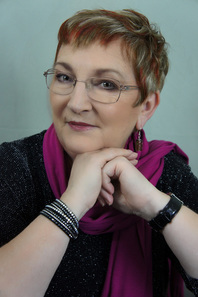 I'd like to welcome my guest blogger for today, Elizabeth Ducie. Elizabeth's debut novel, Gorgito’s Ice Rink, was runner up in Writing Magazine's Self-Published Book of the Year Award so who better to share their tips for anyone considering self-publishing. I self-published my first book five years ago. At the time, I was struggling to finish my first novel (and, although I didn’t realise it at the time, had another three years to go) but was also writing lots of short stories. They weren’t typical women’s magazine stories and I wanted a way of getting them ‘out there’ for people to read. My friend and fellow-writer, Sharon Cook, was in the same boat. But we knew the chances were slim of getting an agent, or a traditional publisher, interested; so we decided to put together a small collection and have a go at doing it ourselves. That’s how Life is Not a Trifling Affair was born. For me there were two additional objectives: to start building my platform in advance of finishing my novel; and to learn about the technology. This week I self-published my tenth book. I am very happy as an independent author/publisher and have abandoned any thought of looking for a traditional publishing deal. I have learned a lot during the process and still continue to learn every time I engage with this fascinating, continually-evolving world of books. So here are just some of the lessons I have learned: Being self-published is NOT about taking short-cuts or doing things easily. It is about taking responsibility, both financially and technically, for the whole project. You take the risks; but on the other hand, you take the rewards as well. Self-publishing is much more acceptable these days than it was in 2011 when I started. But it still has a reputation with some people for poor quality writing and production. You owe it to yourself and your readers to make your books the best they can be; work towards changing people’s opinions, not reinforcing them. If you are self-published, you are running a small business. You will need to be prepared to spend as much time on the business side (production and promotion) as you do on the creative aspects (writing). There will be some things you can do yourself and others you need to sub-contract to others. I buy in the services of cover designer and proof-reader; I barter with other writers for structural editing; and I have a team of volunteer beta-readers. I am very computer literate and do the layout etc myself, but that’s not going to be something everyone will want to do. It’s important to know your limitations and work around them. There are companies that will provide some or all of the services you need for self-publication. Some of them are excellent; others less so. Some are very expensive; others less so. The best are not always the most expensive; and vice versa. Network with other writers; get recommendations; ask questions. Make your decisions based on facts rather than emotion or gut feel. Self-publishing should NOT be the choice of last resort when you have given up hope of getting an agent or a traditional publisher. It is just one of the viable options for someone wanting to get their work ‘out there’. See it as a positive choice; and if it’s the one you want to make, then go for it! Elizabeth Ducie is the author of the prize-winning novel, Gorgito’s Ice Rink, and several collections on short stories. She lectures and writes on business skills for authors and publishes The Business of Writing series. Her latest novel, Counterfeit!, is set in Southern Africa, and is the first in a series of thrillers based in the sometimes murky world of international pharmaceuticals. You can find out more about Elizabeth’s work on her website, on Facebook or on Twitter. http://www.elizabethducie.co.uk  Counterfeit - Out Now Regulator Suzanne Jones’ mission to stop counterfeiting in Africa becomes personal. But her investigations bring danger ever closer. In Uganda a factory burns; Suzanne’s friend goes missing; and in Swaziland and Zambia, children die. Who is supplying the fake drugs? What is the Eastern European connection? Can Suzanne stop the counterfeiters before more people die? Tomorrow - Tuesday 25th July - I'm delighted to be hosting a guest blog from Elizabeth Dulcie on Hints and tips for anyone considering Self Publishing. This is part of her blog tour marking the publication of her latest book, Counterfeit. Drop by tomorrow for some fascinating insights.
 Back in 2009 I posted this blog ... Have you heard of Thomas Fowler, the mathematician and inventor who could have changed the history of computing ? Probably not. Neither had I until I came across an old newspaper cutting a few years back and got hooked. After years buried in dusty archives it dawned on me that this man was as important a player in the history of computing as Charles Babbage. Even more significantly, today's movers and shakers are suggesting that the principles Fowler proposed 150 years ago are actually the future of computing - only no-one seems to know of him. His story is filled with agonizing examples of bad luck, self-sabotage and prejudice - all of which led to him dying without getting the credit for an inspirational invention. In 1841 he said: …my greatest wish was to have had a thorough investigation of the whole principle of the Machine and its details as far as I could then explain them, in a way very different from a popular exhibition. - this investigation I hope it will still have by some first rate Man of Science before it be laid aside or adopted. But it never happened and he died a bitterly disappointed man. Working on the principle of better late than never, my book on the story behind the man and his genius is finally being published on June 25th. At the launch I'll give a presentation on the extraordinary story of Thomas Fowler. It's a free event so please join me: Saturday June 25th, 3pm in the gallery at the Plough in Great Torrington |
Author, lover of real life mysteries and walking the moors.
Archives
December 2021
See previous blogs at: pamvass.blogspot.co.uk
Categories |
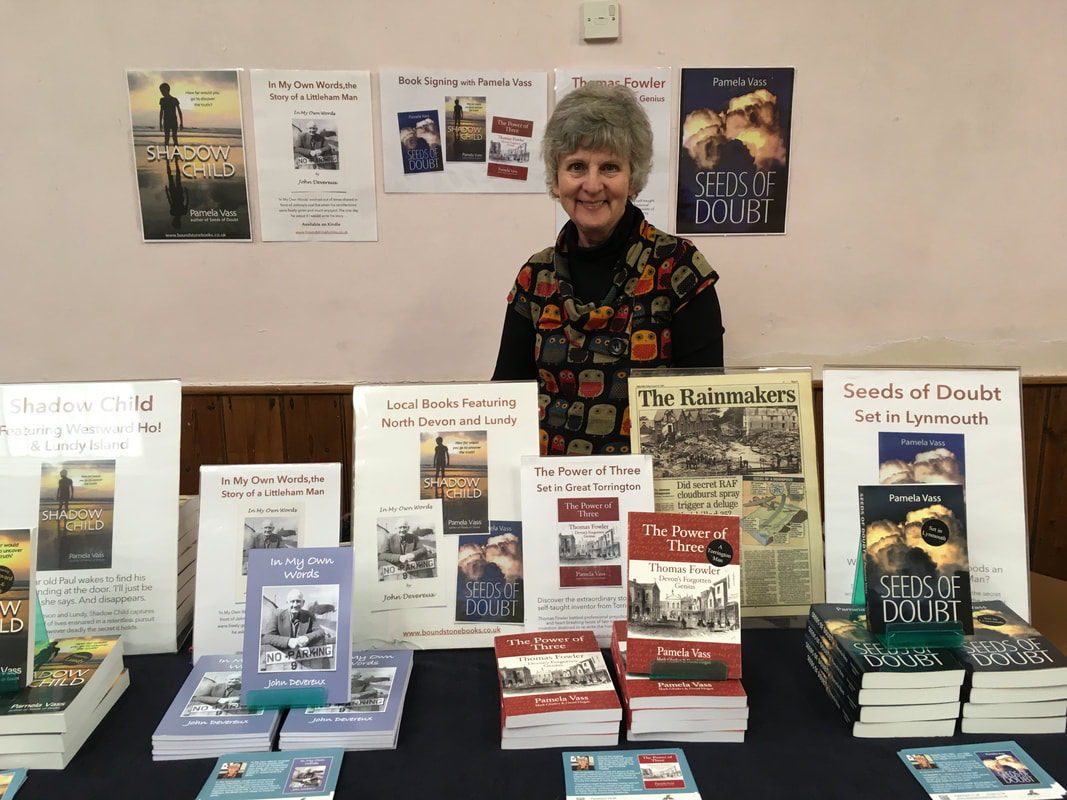

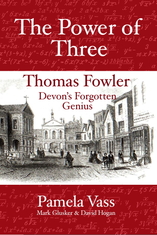
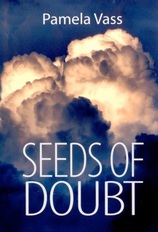

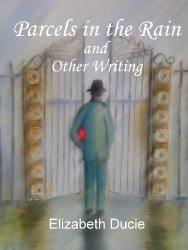
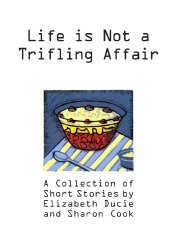
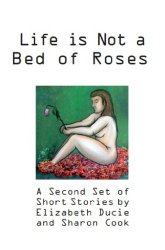
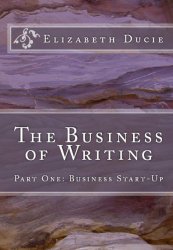

 RSS Feed
RSS Feed